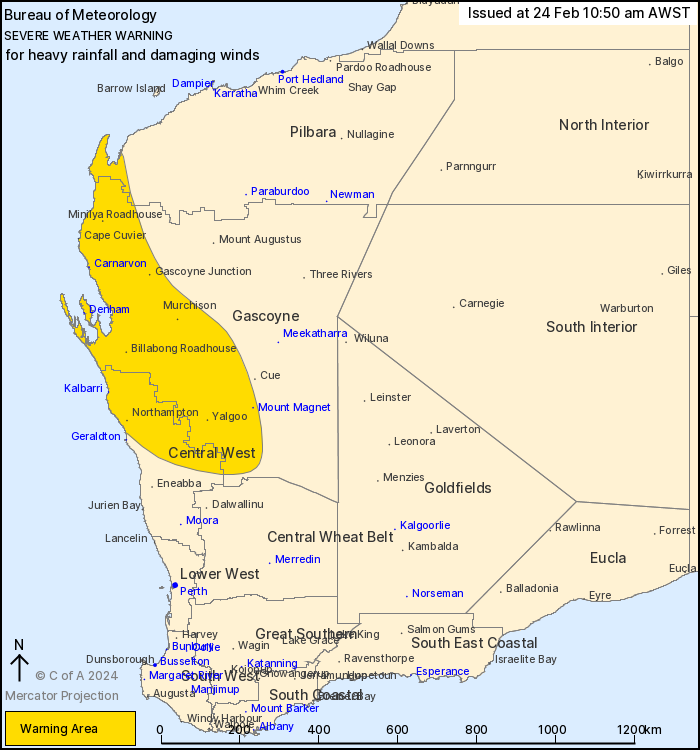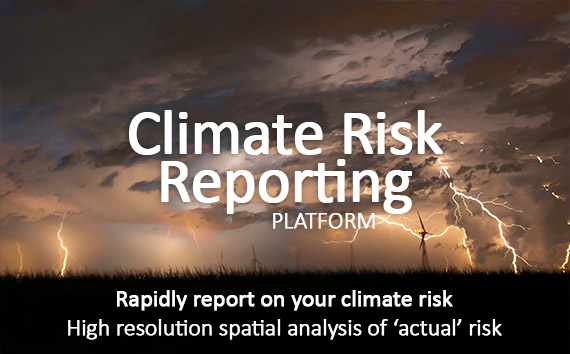Source: Bureau of Meteorology
For people in parts of Gascoyne, Central West and Pilbara
districts.
Issued at 10:50 am Saturday, 24 February 2024.
Ex-Tropical Cyclone Lincoln expected to cross the northwest
Gascoyne coast with damaging wind gusts and heavy rainfall.
Weather Situation: Ex-Tropical Cyclone Lincoln is no longer
forecast to strengthen to a Tropical Cyclone and is expected to
cross the northwest Gascoyne coast as a tropical low this evening
or early Sunday morning. It is then expected to weaken as it moves
inland into the southern Gascoyne during Sunday.
DAMAGING WINDS GUSTS with peak gusts of around 100 km/h are
possible, developing about the far western Pilbara coast this
afternoon before shifting to the coastal areas of the Gascoyne and
northern Central West districts during this evening and Sunday
morning.
HEAVY RAINFALL which may lead to FLASH FLOODING is expected around
and to the east of the tropical low. Peak six-hourly rainfall
totals between 40 to 70mm are possible leading to 24-hourly
rainfall totals between 60 to 80mm in the far western Pilbara,
Gascoyne and northern Central West districts. Isolated 24-hour
falls up to 120mm are possible near the low pressure centre.
Damaging wind gusts are expected to ease late Sunday morning while
heavy rainfall is expected to continue and begin to ease during
Sunday afternoon or early evening.
A Flood Watch is current for parts of Pilbara, Gascoyne Coast and
Central West District Rivers. For details, please see
http://www.bom.gov.au/wa/warnings/
Locations which may be affected include Carnarvon, Denham,
Exmouth, Kalbarri, Mount Magnet and Yalgoo.
The Department of Fire and Emergency Services advises that people
should:
* If outside find safe shelter away from trees, power lines, storm
water drains and streams.
* Close your curtains and blinds, and stay inside away from
windows.
* Unplug electrical appliances and do not use land line telephones
if there is lightning.
* If boating, swimming or surfing leave the water.
* Be alert and watch for hazards on the road such as fallen power
lines and loose debris.
* Keep away from flooded drains, rivers, streams and
waterways.
* Be careful of fallen trees, damaged buildings and debris.
* Be careful of fallen power lines. They are dangerous and should
always be treated as live.
* Assess your home, car and property for damage.
* If damage has occurred take photos and contact your insurance
company to organise permanent repairs.
* If your home or property has significant damage, like a badly
damaged roof or flooding, call the SES on 132 500.

24/Feb/2024 02:56 AM



